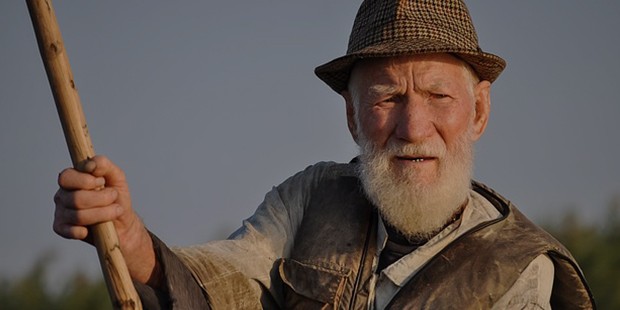How to Write the Narrative of your Own Life

We’re a culture obsessed with stories.
And when I say “culture,” I’m not homing in any particular subset of humanity—this isn’t about Americans or Europeans or Asians, or anything else we traditionally recognize as a culture. This about human culture. This is about humanity.
Humans are essentially hard-wired for story. It’s in our DNA. Literally.
If you break down the human genome and study it closely, it tells a story of us, from our humble beginnings to current day. You can see markers that indicate where your family hailed from, and where they may have spent a generation or so on the way to propagating the exact sequence of genes that would one day be sitting in front of a computer or grasping a smartphone or a tablet, and reading these very words.
But when we say “story,” we’re more often talking about something other than markers and signs. We’re talking about the traditional beginning-middle-end of a tale that might thrill us or chill us, that might inform us and educate us, that might make us think and grow as people. Stories can be like that. Stories are that. They help us create an identity for ourselves.
In fact, the story you choose to tell yourself is the most important narrative of your life.
BEGINNING

What was your childhood like? Who did you hang out with? What’s the best memory you have? The worst?
The answers to those questions are the beginning of your narrative—the story you use to self identify. When you think about your roots, about your family and heritage, you’re filtering all your memories and family knowledge, separating out the bits that matter, and using those to build a beginning for yourself that fits best with your overall story.
That’s mostly done by instinct. We tend to think of our past as immutable and indelible, and we operate within our daily lives under the impression that we are the result of all that came before.
But the truth is, that narrative may be a lie.
As a novelist, I spend a lot of time thinking about beginnings. When I start a new story, I have to find the exact right way to ease my characters into it. I have to set the scene and the tone, and I have to establish my world and the character’s current role in it.
But sometimes I get it wrong.
Somewhere on my hard drive is a folder filled with “story starters.” These are bits that I started writing, thinking I had the idea all settled and ready for the page, when I suddenly realized that the beginning didn’t fit with the narrative I was trying to create. Somehow, the beginning wasn’t quite right.
So I scrapped it, and I started over. And, most of the time, the new beginning fit much better. I could tell the story the way I meant to, because I got the beginning right.
The funny thing is, life is like that, too.
We tend to tell ourselves that our beginnings are just what they are. They can’t change. Everything that happened just happened—and it’s not like we can go back and make it turn out differently. Right?
Except we can.
Humans have a really cool, and really amazing ability. We can rewrite history.
Have you ever played a game of “telephone?” When I was a kid, we used to play this in groups all the time.
The rules are simple: Everyone sits in a circle, and one person whispers a phrase to the person next to them. That person whispers it to the next, and that one to the next, until the whispered secret has been passed all around the room. When it gets back to the first person, the last person to have heard it tells the secret out loud.
And the thing is, that last person almost always says something that has little if anything to do with the secret that the first person started.
Somewhere along the way, that secret got morphed into something else entirely, despite the “reality” of where it started. When it came back around to the person who said it first, it was a new story altogether.
Similarly, we see the world in pretty much the same way. Sometimes what we think we see and what we think we recognize as being reality turns out to be a warped version of events. We inadvertently got some detail wrong. Some bias we hold colored our perception. We saw only part of what was going on, and our brain filled in the rest (and got it wrong).
So what we think we know can sometimes be as false as a lie, but we accept it as truth anyway, because it’s the only truth we know.
When it comes to changing our own narrative, though, we can use this little quirk of human perception to our advantage.
The more you tell yourself something, the more you come to believe it. If you tell yourself, again and again, that you are going to fail at something, you probably will fail. If you tell yourself that you’re going to drop and break something while rinsing dishes in a sink, there’s a good chance you’re going to have a broken dish on your hands soon.
In the same way, if you tell yourself “I got this,” you’ll likely have all the confidence you need to make it happen.
We humans pretty much move in the direction we’re looking. We can program ourselves in all sorts of ways.So you might consider changing your narrative by changing how you see your beginning. Retell your origin story in a way the benefits and empowers you.
Spend some time reframing what you know and what you remember. Take the parts you think of as “good,” and amplify those in your mind. Make them louder. Make them brighter and more colorful.
At the same time, take the stuff that bugs you, the negative bits, and make them dimmer, uglier, more boring, less detailed. De-emphasize the memories you have of the bad stuff, and over-emphasize the memories you have of the good stuff. Choose to tell yourself a better story, and you’ll change the story to fit the narrative you really want to tell about yourself.
Middle

Getting yourself to rethink the beginning of your personal narrative is a good start. But what about now? What about the world you’re living in at this exact moment? How can you change the circumstances of your life, as you’re living them?
I recently participated in a course called “Prosperity for Writers,” which was designed by author Honoree Corder, who also turned it into a book of the same name. In the course and the book, Honoree uses the term “BOLO.” She takes this from cop shows, like CSI, and it stands for something kind of cool:
Be on the Lookout
Honoroee tells her readers to “be on the lookout” for things that match up with the kind of life you’re looking to lead. If you’re trying to be wealthy, look for examples of wealth all around you—keep your eyes peeled for Lamborghinis and multi-million-dollar mansions. If you’re trying to be an author, “be on the lookout” for anything related to becoming an author—books you can read, podcasts you can listen to, articles you can scan.
The point is, as we said earlier, humans tend to go in the direction they’re looking. So look for the direction that you like best.
In professional racecar driving, the drivers are trained to constantly keep their eyes on the course, and not start looking at the other cars around them, or the walls that are sliding by in a blur. They’re taught this, because if you’re looking around you instead of to where you’re going, there’s a tendency to drift. Before you know it, you’ve left your lane and you’re now hurtling toward the wall at high speed. And that’s just no place to be.
It’s the same for the middle of your narrative. Wherever you are, you got here because of the story you paid attention to. You told yourself who you were, and it defined who you became. But that doesn’t have to be the case. Now that you’ve given yourself a new beginning, start paying attention to the things in your life that match up to it. Look for little details in your daily life that you can point to as evidence. Decide to ignore anything in your life that doesn’t fit with the narrative you have written for yourself, and put all of your attention on the “who” that you want to be, not on the “who” that you once thought you were.
End

Be Consistently Successful in Life
There’s one thing that humans are fantastically bad at: We have a terrible time predicting the future.(Just look at weather reports!)
We often see things as being a lot more bleak than they really are. We think that if things are bad now, they’re only going to get worse. Or, weirdly, if we think that things are good now, then they can only get worse. Negative nellies.
But that isn’t how life works.
Bad things happen. We know that. But bad things aren’t inevitable. In fact, if anything is inevitable in this world, it’s that good things somehow always manage to appear, if you’re looking for them.
We are terrible at predicting the future. But we are amazing at deciding what we want the future to be! So let’s do that instead.
Decide what you want your future to look like. Write it down. Draw pictures of it. Make a poster board filled with things that look a lot like what you’re trying to accomplish with your life. Start a board on Pinterest and collect links to websites and images that match up with the life you’re dreaming about. Talk to people who have done what you’re wanting to do, and ask how they did it, and if they have any advice.
You don’t have to accept some inevitable future that you can’t control. You can choose.
When kayakers drop their kayaks into a stream, they know they’re surrendering to the current. They know that there will be rocks ahead, and that the waters will be turbulent. They also know that no matter how hard they paddle, they are never, ever, ever going to change the course of the river. It’s going to take them to wherever it goes.
But they also know that just because the river can’t be controlled doesn’t mean they have no choice in the direction they take.
Kayakers can slow their movements, or speed up. They can choose a route through the rocks. They can choose how they handle rapids. They can choose, at any time, when to shift their position on the river, so they can land on whichever bank serves them best. Despite having no control over the river itself, kayakers have complete control over their own choices while on that river.
That’s life for you.
We don’t get a say on where this river is taking us. Inevitably, all of us get washed to the same spot. We can’t choose to reroute the whole river. We can only choose to reroute our journey along it.
That’s what it means to choose your end. Your narrative is what you say it is. You have control, even while you’re being dragged along. So decide, daily, on how you want to adjust your course. Choose the end you want most, and work toward it with everything you have.
Change your narrative so that the only possible outcome is the one you want most.
That’s the kind of story we all really want to tell. Now, go tell it for yourself.









